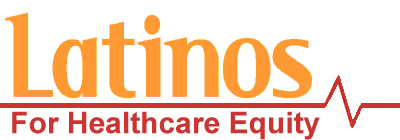« Back to ‘normal’ isn’t good enough | Main | Approval of a Questionable Treatment for Alzheimer’s »
Territories’ Looming Medicaid “Cliff” Highlights Need for Full, Permanent Funding
By admin | March 24, 2021
By Javier Balmaceda,
Senior Policy Analyst on Puerto Rico CBPP
U.S. territories face yet another sharp drop in federal Medicaid funding this September when a temporary federal funding boost is set to expire, and the stakes are even higher this time due to COVID-19’s health and economic crises. Without more federal funding, hundreds of thousands of Americans living in Puerto Rico and the other U.S. territories (American Samoa, Guam, the Northern Mariana Islands, and the U.S. Virgin Islands) risk losing access to health care.
This latest funding “cliff” again highlights the territories’ need for adequate funding to avoid major disruptions to their health care systems. The best way to avert the looming crisis is for federal policymakers to provide full, permanent Medicaid funding to enable the territories’ Medicaid programs to provide the same coverage that state Medicaid programs provide.
Unlike the states, where federal Medicaid funding covers a specified share (known as the federal matching rate) of their Medicaid spending, the territories receive a fixed block grant that’s unrelated to need. Puerto Rico’s block grant allotment for fiscal year 2020, for instance, was $375.1 million, but the Commonwealth was projected to spend $2.8 billion in its Medicaid program. And while each state’s federal matching rate is tied to its relative per capita income and can go as high as 83 percent, the territories’ matching rate is fixed at 55 percent irrespective of need. Because Puerto Rico’s block grant funding is so small, moreover, without additional federal funds it would receive no federal matching funds at all once its block grant funds run out. Due to all these factors, Puerto Rico’s block grant covered just 15 percent of the Commonwealth’s total annual Medicaid spending on average between 2012 and 2019. As a result, Puerto Rico can’t afford to cover seven of Medicaid’s 17 mandatory services, including nursing home care and nurse practitioner services.
Over the past decade, federal policymakers have temporarily raised the territories’ Medicaid allotments and matching rates, but those short-term fixes haven’t allowed Puerto Rico to make sustained program improvements. Many health care professionals have left Puerto Rico for the U.S. mainland and the stable funding structure that state Medicaid programs provide. The latest temporary increase, a two-year package that policymakers enacted in 2019, is set to expire fully at the end of September. This funding cliff could force territories to cut benefits such as prescription drugs and dental care, and many people could lose their Medicaid coverage altogether, including over half of enrollees in Guam and the Virgin Islands.
Because the federal funding increases have been temporary, Puerto Rico hasn’t been able to make needed Medicaid improvements such as expanding eligibility by permanently raising the program’s income limits, which are much lower than in the states. The current federal funding increase includes the funds needed to expand eligibility, but the federally mandated Financial Oversight and Management Board for Puerto Rico disallowed a permanent expansion, citing the funding’s short-term nature; it did allow Puerto Rico to expand eligibility through the end of the COVID-19 public health emergency.
President Biden’s forthcoming economic recovery plan gives policymakers an opportunity to enact a permanent fix that would give the territories stable, adequate funding and put them on a path to align their Medicaid programs with state programs as quickly and completely as possible. Bills like this year’s H.R. 1722, which was first introduced as H.R. 3371, in the last Congress, provide one approach to giving Puerto Rico a pathway to funding parity and alignment over ten years.
Policymakers could apply this or a similar approach to the other territories. With inadequate ongoing funding and only temporary additional funds, the other territories’ Medicaid programs also can’t meet all Medicaid standards for coverage and benefits. American Samoa and the Mariana Islands have federal waivers that let them waive some Medicaid standards; the other territories don’t have these waivers, but the Centers for Medicare & Medicaid Services has let them fall short of federal standards due to their inadequate federal funding.
Stable, robust Medicaid funding is especially critical in light of the territories’ recent past, which has seen extended economic decline, devastating natural disasters, and chronically high poverty. The American Rescue Plan Act, which President Biden just signed into law, will provide critical help, such as by enabling families in Puerto Rico to qualify for the Child Tax Credit on the same basis as families in the states. Policymakers should now do the same for Medicaid by enacting permanent and adequate funding that would give territories a stable and robust health care system.
Topics: Uncategorized | No Comments »
Comments are closed.

